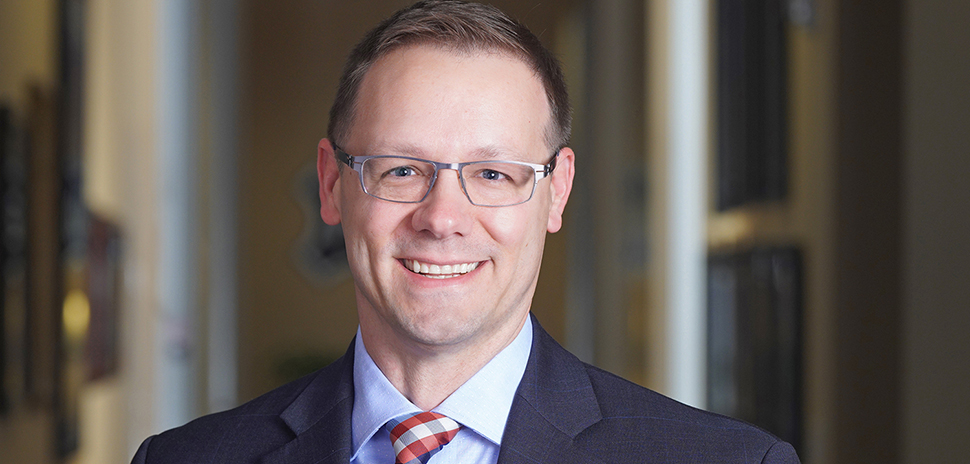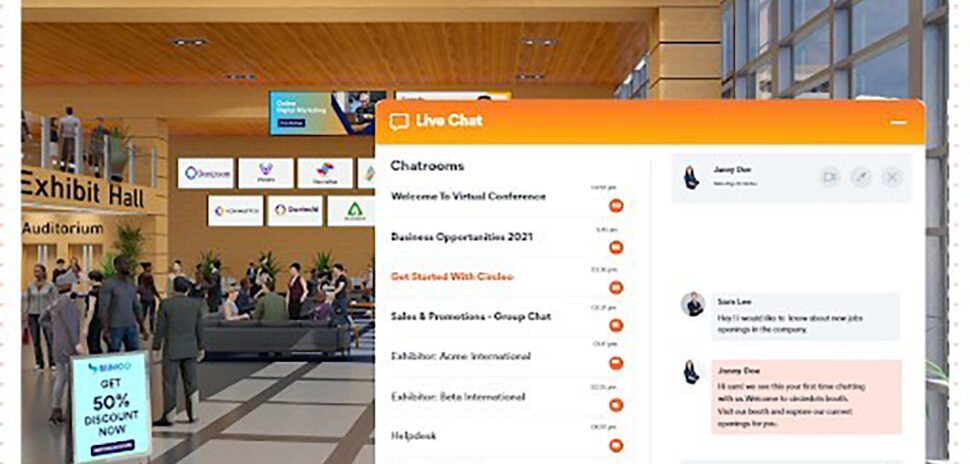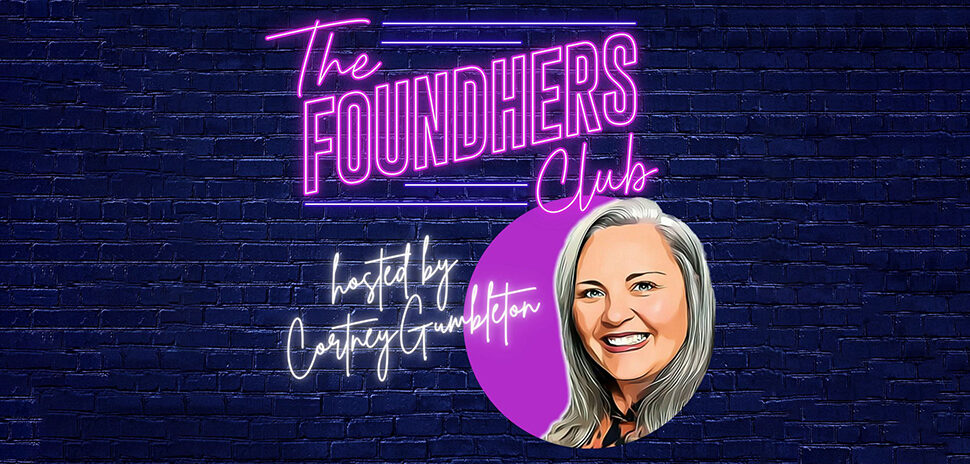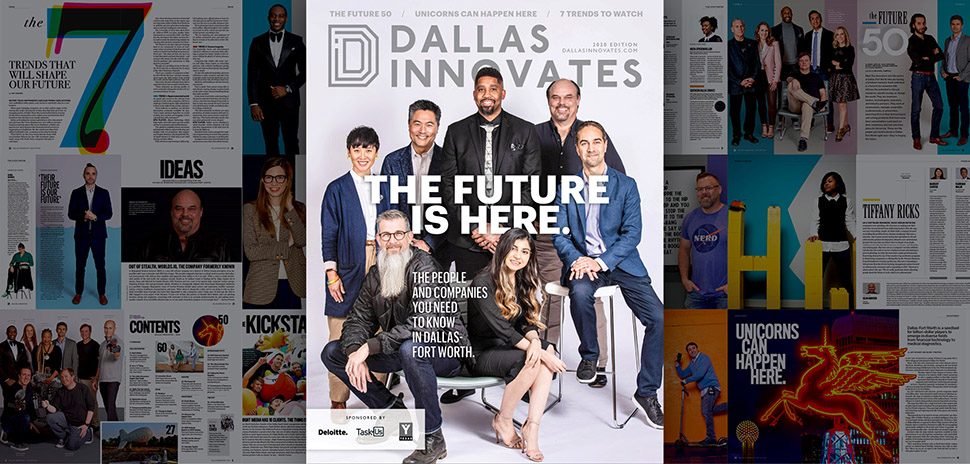“Job number one is facilitating the creation of jobs,” says Jason Ford, vice president of the Frisco Economic Development Corp. It’s part of the EDC’s mission to improve the economic opportunities and quality of life for Frisco residents.
The EDC plays a major role in marketing and promoting Frisco as a destination location for corporate relocations and expansions of existing firms. It also serves as a one-stop shop within the city for site selection, Ford says. The EDC helps companies find real estate, talent, and local suppliers in Frisco, in addition to assisting with research and market data, permitting, taxes, and incentives.
The pandemic has changed the process with more virtual site tours, admits Ford: “We’re certainly living in challenging times, but we’re navigating through it.”
Still, the outlook is bright, the economic developer says: “Frisco is a recession-resilient city, and we’re beginning to see business return with Frisco being on the shortlist for a variety of projects.”
In a Q&A, Ford discusses how the city attracts companies and the sectors where it anticipates growth, as well how the COVID-19 pandemic has changed things. There’s a focus on a safe reopening and recovery assistance as “all levels of government and economic development have put a higher priority on business retention and economic recovery efforts, he says.
 How does the city get involved in attracting a company?
How does the city get involved in attracting a company?
The Frisco EDC works with various site selectors and companies looking to relocate either their national or regional headquarters within the city.
Are there sectors you’re looking for?
The Frisco EDC works with a variety of companies in a multitude of industries, mostly focused on traded sector firms. We prioritize our efforts on four key target sectors which are corporate attraction and expansion; innovation, the business of sports; and gaming and new media.
Has the pandemic changed the site selection process? If so, how?
We are certainly living in challenging times, but we are navigating through it. Frisco is a recession-resilient city, and we’re beginning to see business return with Frisco being on the short list for a variety of projects. Currently, we are also conducting all meetings—and what would have been an in-office meeting—to virtual meetings. We also are preparing new ways to promote the city to our audiences and conduct virtual site tours since more than 80 percent of site selection is completed online; that was true before the pandemic, and the rate is even higher now. And companies are navigating these trying times just as we are at the city.
Is the pandemic changing the role of the state or incentives in attracting new businesses to Texas?
All levels of government and economic development have put a higher priority on business retention and economic recovery efforts. Because our budgets also have been impacted by the reduction of tax revenues related to pandemic shutdowns, many cities, including Frisco, committed their existing staff and financial resources to focus on safely reopening and providing economic recovery assistance. In Frisco, we are fiscally-conservative and fortunate to have a strong fund balance, so we are still using our incentive tool kits to help attract quality projects that will generate new jobs and tax revenues to grow our economic base and hopefully hire local workers who were displaced due to the economic downturn.
Are there reasons for optimism for the rest of 2020 and going into 2021?
Yes, I’m optimistic about how we move forward. I think the city will continue to grow but maybe not quite at the levels we had been seeing before the pandemic. With strong fundamentals, Frisco is positioned well to move forward and grow at possibly higher rates than some other areas. We expect to see more pilot projects and possibly more public-private partnerships within Frisco.
In what sectors do you anticipate growth?
The restoration of Frisco’s convention and tourism industry is key to the success of the city’s recovery going forward. And fortunately, the team at Visit Frisco is focused on making that happen. Day-trippers may prove to be a strength for Frisco as a safer alternative for tourists not wanting to fly or travel long distances. Also, as a modern and progressive suburb, we believe cities like Frisco will benefit by the return of growth to the suburbs. We are already seeing multiple signals that Frisco’s design and existing developments will help us to attract new jobs as companies realign their priorities. In 2019, suburbs across the U.S. saw the highest rates of growth for Class A office projects, so we hope that trend continues for Frisco as it has been for several years.
How is Frisco responding to the challenges your business community is facing because of the pandemic?
First, the City of Frisco launched a public-private Recovery Task Force with members of the civic and business community as well as our emergency operations coordinators to help safely reopen Frisco. Our goal is to balance public safety and public health, with business continuing through a voluntary compliance program. The City committed every department to help all companies determine how and when they can reopen to keep their business operations going while meeting local, state and federal guidelines. The Frisco EDC also just wrapped up the Frisco/Collin County Small Business Grants Program, which was a program designed to assist small business in the Collin County portion of Frisco with grants as part of the CARES act. These funds were provided by the City of Frisco through Collin County. We will continue to engage our entrepreneurs, startups, tech firms, and universities in our go-forward planning and approach. We will also take a more comprehensive survey of Frisco employers to determine what’s needed most for Frisco and develop a new recovery game plan from there.
A version of this story first published in the Summer 2020 edition of the Dallas-Fort Worth Real Estate Review.
Read more on why DFW is a place for the future from these area commercial real estate experts:
‘North Texas Has a Lot Working in Our Favor’
Mike Berry, President, Hillwood
‘There Will be New Opportunities’
Shane Shepard, Economic Development Director, City of Lancaster
‘It Is Reasonable To Expect That the Area Will Fare Especially Well’
Ray Perryman, The Perryman Group
Site Selection Group Partner Sums Up the DFW Commercial Real Estate Market in 8 Words
Lee M. Wagner, Partner, Corporate Real Estate Services, Site Selection Group
Inquiries by economic development agencies “are up by a significant multiple over this period last year”
Joel Pustmueller, Managing Director, Brokerage, JLL
‘We’re Seeing More Companies Investing in Their Existing Footprint’
Beth Bowman, President and CEO of Irving Economic Development Partnership
The Future Is Bright for Dallas-Fort Worth Corporate Relocations and Consolidations
Jeff Ellerman, Vice Chairman, CBRE
Read the digital edition of Dallas Innovates’ sister publication, the Real Estate Review, on Issuu.
Sign up for the digital alert here.
![]()
Get on the list.
Dallas Innovates, every day.
Sign up to keep your eye on what’s new and next in Dallas-Fort Worth, every day.




























